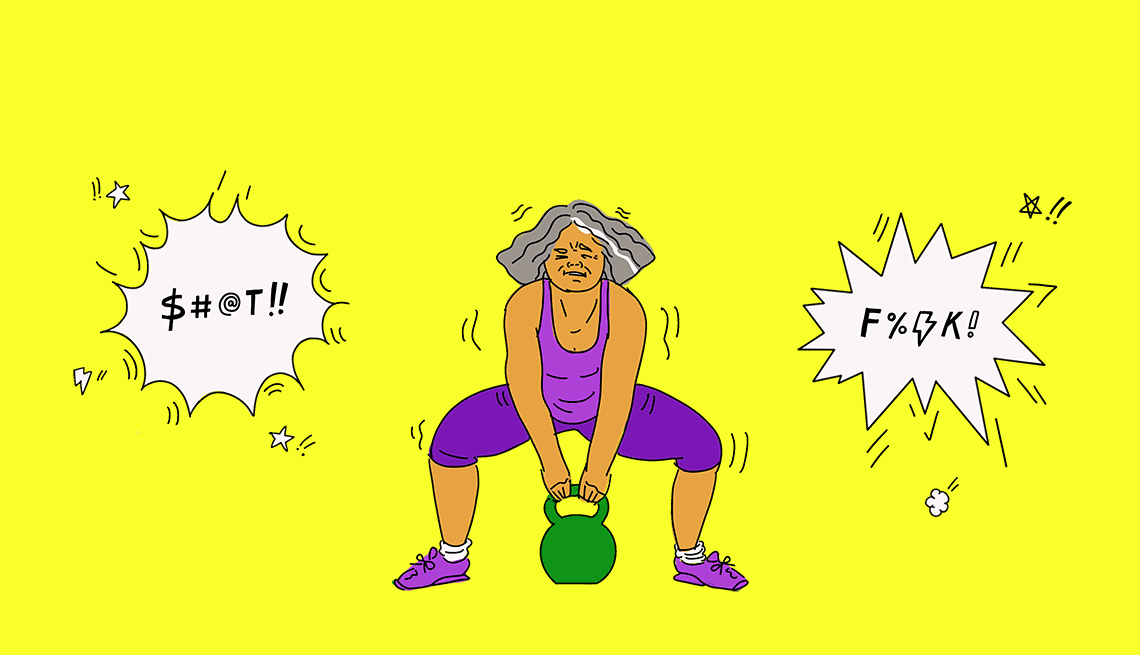Play all audios:
A profanity-laced workout may be just what you need for an extra edge. Jade Shulz Facebook Twitter LinkedIn
It’s not often that your potty mouth is granted a pass, but that’s exactly what a growing body of research offers anyone looking to improve their workouts, including the millions of older
adults who hit the gym regularly.
Experts have known for a while that taboo words (and we aren’t talking dang or darn) have the power to help us release a range of emotions, both positive and negative. Turns out, that very
quality comes in handy during certain types of exercise.
In a landmark study published in 2018 in the journal Psychology of Sport and Exercise, a team of researchers — working off a hunch that dropping the F-bomb during exercise can improve power
and strength — asked participants to choose a swear word they might use in response to accidentally banging their head. They were then asked to repeat that swear word every three seconds
during a 30-second, high-intensity cycling test that measures muscle strength and power.
Participants were also asked to repeat a swear word for 10 seconds before undergoing a test measuring grip strength and to continue repeating their swear word throughout the test. In both
instances, researchers found that swearing improved performance: It increased peak and average power on the cycling test by 4.5 percent, on average, and grip strength by 8 percent, on
average, compared to repeating a non-swear word.
In a separate study, published in 2022, participants were asked to do chair push-ups, which involve using your hands to raise your body off a chair and holding the position for as long as
possible. Those who repeated a swear word while doing so could hold the position for 10 percent longer than those who repeated a neutral word.
WTF is going on?
The power of profanityExperts aren’t entirely sure why four-letter words have such superpowers during a sweat session. What they do know is that “swearing might trigger a fight-or-flight response, increasing
adrenaline and helping people push through physical discomfort,” says Greg Chertok, a certified mental performance consultant at Telos Sport Psychology Coaching.

